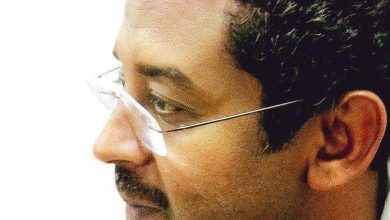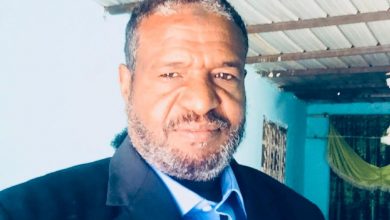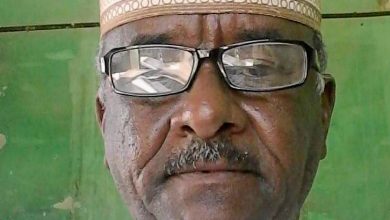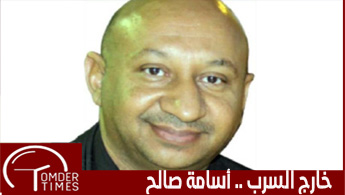وجه الحقيقة- /ابراهيم شقلاوي – – قرار الرئيس الأمريكي رفع القيود عن السودان التوقيت و الدلالات.
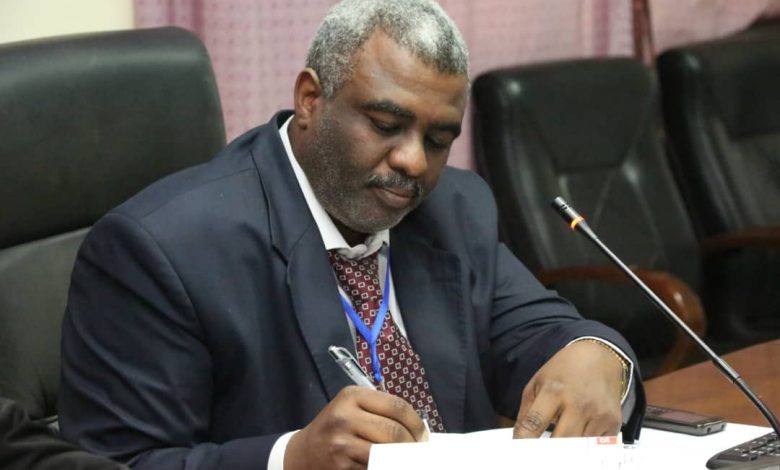
فرضت الإدارات الأميركية المتعاقبة على البيت الأبيض سلسلة عقوبات اقتصادية على السودان ، صدرت إما بأوامر تنفيذية من الرئيس أو بتشريعات من الكونغرس الأميركي، وهدفت إلى الضغط على السودان المتهم برعاية ما يسمى بالإرهاب ، خلال سنوات حكم الإنقاذ منذ العام 1988م، كما ظلت هذه العقوبات شاخصة خلال فترة حكم الرئيس عمر البشير التي امتدت إلى ثلاثين عام ، كانت العقوبات في باطنها للحد من نفوذ حكم البشير ومحاصرته ، في تلك الفترة التي بدأ فيها نظام الحكم يبرز بشخصية مستقلة عن المنظومة الدولية الاستعمارية التي ظلت تمارس الهيمنة على الشعوب وتعمل على مصادرة قرارها السيادي ووأد أي محاولات للتحرر الوطني ، في تلك الفترة فرضت الولايات المتحدة عقوبات على السودان للحد من نفوذه الإقليمي الذي بدأ يتشكل سريعا مستقويا بعدد من الأنظمة السياسية في محيطه التي ظلت تناصب الولايات المتحدة الأمريكية العداء رفضا للهيمنة والاستكبار، مثل النظام الإيراني والسوري في العام 1997 تم تصعيد العقوبات لدرجة الحظر التجاري وتجميد أصول الحكومة بسبب ماسمته الولايات المتحدة الأمريكية، انتهاكات لحقوق الإنسان ومخاوف تتعلق بالإرهاب.، كذلك فرضت مزيدا من العقوبات في 2006م بسبب ما قالت إنه دعم للعنف في دارفور ، بعد اعتمادها على تقارير كان يعدها ناشطين وسياسين سودانيين مناوئين للحكومة في تلك الفترة، أثرت هذه العقوبات تأثيرا بالغا على الشعب وعلى الاقتصاد السوداني ، ومازال السودان يعاني من هذه الآثار ، رغم محاولات السودان تجاوزها باللجوء إلى دول أخرى مثل الصين لمساعدته في إنجاز عدد من المشروعات الاقتصادية التي ساهمت بصورة مقدرة في تجنيب السودان الآثار السالبة لهذه القرارت ، حيث أنها دخلت في استثمارات واسعة مع السودان في مجال الطاقة والنفط والبنية التحتية بجانب المشروعات الزراعية والصناعات الدفاعية ، في المجمل شهد العام 2015م حتى العام 2017 تفاهمات حول ماسمته الولايات المتحدة الأمريكية تعاون في مجال مكافحة الإرهاب وتقدم السودان في ملف حقوق الإنسان حيث أصدر الرئيس الأمريكى (باراك أوباما) أمرا تنفيذيا قضى بتخفيف العقوبات الإقتصادية والتجارية المفروضة على السودان.، بما يسمح للشركات الأمريكية بتصدير أجهزة اتصال شخصية بالإضافة إلى برمجيات تتيح للسودانيين الاتصال بالأنترنت وشبكات التواصل الاجتماعي ، ظلت هذه العقوبات تمثل الجزرة والعصا على مستوى العلاقات السودانية الأمريكية ولم تفلح حكومة الثورة بقيادة عبد الله حمدوك بعد تغيير نظام حكم البشير في تطوير المواقف مع الولايات المتحدة الأمريكية رغم الحرص الذي اظهرته من خلال دفعها مبلغ 750 مليون تعويضات لأسر الضحايا في عملية البارجة الأمريكية رغم أن المحكمة سبقت وأن برأت السودان عن تلك التهم دون أن تجدي نفعا في رفع العقوبات ، في 30 سبتمبر الماضي 2024م في خطوة ذات توقيت جيد عدها المراقبون بمثابة انتقال لليوم التالي من الحرب ، أعلن عن قرار الرئيس الأميركي رقم (7017)، الذي تم بموجبه إعفاء السودان من العقوبات المفروضة وفقاً لقانون حماية ضحايا الاتجار بالبشر الأميركي لعام 2000، للسماح باستمرار المساعدات بموجب أحكام مساعدات التنمية وبرامج الصحة العالمية ، حيث يتيح القرار للسودان الحصول على مساعدات التنمية الأمريكية والاستفادة من برامج الصحة العالمية ، كما يتيح القرار للسودان الاستفادة من المعاملات البنكية والتجارية والمالية والمساعدات التقنية والتبادل في مجال البحث العلمي وفرص التعليم ، لم يتأخر ترحيب الحكومة السودانية بالقرار على لسان وزير خارجيتها حسين عوض حيث اعتبرته يمثل تقدماً مهماً في العلاقات بين البلدين وسيساهم في جهود إعادة الإعمار ، خاصة تأهيل القطاع الصحي ، الناظر إلى توقيت القرار ودلالاته يستطيع أن يرى من خلاله أن الولايات المتحدة الأمريكية بهذه الخطوة تسعى إلى تحقيق مصالح تخصها بصورة مباشرة في تمكين الشركات الأمريكية من دخول السودان عقب الحرب للمساهمة في إعادة الإعمار وبذلك تحرص أمريكا بأن يكون لها دور واضح ومصلحة مباشرة في الاستفادة من موارد السودان من خلال ماتقوم به من تعبيد للطريق عبر هذا القرار حتى تتمكن من التعامل المباشر مع الحكومة السودانية بتعزيز المصالح المشتركة ، حيث أن وجود هذه الإجراءات كان يمثل عائق أمام دخول الولايات المتحدة الأمريكية للسوق السوداني ، أما في جانب مصالح السودان القرار يلغي آخر العقبات الموجودة المتعلقة بالمساعدات التجارية والمالية ، لذلك عده المراقبون على راسهم الدكتور مجاهد إبراهيم استاذ العلوم السياسية بالجامعات الأمريكية المتخصص في العلاقات الدولية:( أنه قرار اقتصادي بامتياز يصب في مصلحة السودان إذا أراد أن يتعامل مع أمريكا بميزان تجاري مفتوح ، هذا ما يجعل المصالح الأمريكية أكبر في السودان من خلال حرصها على قطع الطريق أمام دول أخرى مثل الصين وروسيا ، القرار أيضا يحمل جانب مهم إذ أنه يرتبط بقانون الشفافية المالية و بميزانية الولايات المتحدة الأمريكية المجازة حتى العام 2025م،) لذلك يظل وجه الحقيقة : يدعو إلى أهمية استفادة السودان من هذا القرار في هذا التوقيت المهم وهو مقبل على إعمار ما دمرته الحرب ، وإصلاح الاقتصاد لتمكينه من النهوض ، عليه يجب أن يوظف السودان القرار في انتقال جديد من خلال الاستفادة من إتفاقية( الهيبيك) لإعفاء ديونه كما عليه أن يذهب به إلى منظمات التمويل الدولية للنظر في شراكات اقتصادية تمكنه من الحصول على أموال تساعده في إعادة البناء ، كذلك على وزارة المالية وكل الطاقم الاقتصادي في البلاد المسارعة بإعداد رؤية حول كيفية الاستفادة من هذا القرار من خلال إرسال وفد للولايات المتحدة الأمريكية لتقديم رؤية السودان الاقتصادية خلال المرحلة المقبلة التي تقوم على تبادل المصالح واحترام السيادة الوطنية ، كذلك تظل فرص السودان واسعة في الانضمام إلى أي تجمعات اقتصادية مثل تجمع دول( البركس)إذا ما قرر ذلك.
دمتم بخير وعافية.
الأحد 6/أكتوبر 2024 م. Shglawi55@gmail.com
*The Face of Truth / Ibrahim Shaglawi – The U.S. President’s Decision to Lift Restrictions on Sudan: Timing and Implications*
Successive U.S. administrations have imposed a series of economic sanctions on Sudan, either through executive orders by the president or through U.S. Congress legislation. These sanctions aimed to pressure Sudan, accused of sponsoring what was termed “terrorism” during the years of the Salvation government starting in 1988. These sanctions remained in place throughout the 30-year rule of President Omar al-Bashir, ostensibly to limit the influence of Bashir’s government and isolate it. During this period, the regime appeared to be developing an independent stance, distancing itself from the international colonial system that has long dominated nations, suppressing their sovereignty, and stifling any attempts at national liberation.
At that time, the United States imposed sanctions on Sudan to curb its rapidly growing regional influence, especially given its alliances with political systems hostile to the U.S., such as Iran and Syria. In 1997, the sanctions escalated to include a trade embargo and the freezing of government assets due to alleged human rights violations and terrorism concerns. Additional sanctions were imposed in 2006, citing Sudan’s support for violence in Darfur, based on reports from activists and Sudanese politicians opposed to the government. These sanctions had a profound impact on the Sudanese people and economy, effects that Sudan continues to feel today. Despite efforts to overcome these sanctions, such as partnering with other nations like China to complete economic projects, Sudan remained burdened by the negative consequences of these measures.
China played a significant role in helping Sudan mitigate some of the sanctions’ effects by investing in energy, oil, infrastructure, agricultural projects, and defense industries. From 2015 to 2017, there were U.S.-Sudan discussions around what the U.S. termed “counterterrorism cooperation,” and Sudan made progress on human rights issues. As a result, President Barack Obama issued an executive order easing some of the economic and trade sanctions, allowing U.S. companies to export personal communication devices and software that would enable Sudanese citizens to access the internet and social media.
However, these sanctions remained a “carrot and stick” in U.S.-Sudan relations. Despite the transitional government led by Abdullah Hamdok after the ousting of Bashir, and despite Sudan’s payment of $750 million in compensation to the victims of the USS Cole bombing (a case in which Sudan was previously acquitted), these efforts did not lead to the lifting of sanctions.
On September 30, 2024, in a move with significant timing, President Biden issued Executive Order No. 7017, exempting Sudan from sanctions imposed under the U.S. Trafficking Victims Protection Act of 2000. This move allows for the continuation of aid under development assistance provisions and global health programs. The decision enables Sudan to access U.S. development assistance and benefit from global health programs. Additionally, it allows Sudan to engage in banking, commercial, and financial transactions, benefit from technical assistance, and participate in scientific research and educational exchange opportunities.
Sudan’s government, through its foreign minister Hussein Awad, welcomed the decision, viewing it as an important step forward in bilateral relations and one that would aid reconstruction efforts, especially in the health sector. Observing the timing and implications of the decision, it becomes clear that the United States is seeking to further its interests in Sudan by enabling American companies to participate in reconstruction efforts post-war. By clearing the way through this decision, the U.S. aims to secure a direct role and benefit from Sudan’s resources, ensuring American companies’ entry into the Sudanese market without the hindrance of existing sanctions.
For Sudan, the decision removes the last major obstacles related to commercial and financial aid, making it a significant economic opportunity if Sudan wishes to engage with the U.S. in an open trade relationship. This decision is also seen as a U.S. strategy to outmaneuver other countries, such as China and Russia, in gaining influence in Sudan. The decision is closely tied to financial transparency laws and the U.S. budget approved through 2025.
Thus, the face of truth remains: how will Sudan benefit from this decision as it embarks on rebuilding what war has destroyed and reforming its economy to enable growth? Sudan must take advantage of this decision by leveraging the HIPC (Heavily Indebted Poor Countries) initiative to seek debt relief and by engaging with international financial organizations to establish economic partnerships that will provide the funding necessary for reconstruction. Additionally, the Ministry of Finance and the entire economic team in Sudan must urgently develop a plan to capitalize on this decision, including sending a delegation to the United States to present Sudan’s economic vision for the coming phase, based on mutual interests and respect for national sovereignty. Sudan also has the potential to join economic alliances, such as BRICS, should it choose to do so.
Wishing you health and well-being.
Sunday, October 6, 2024
Shglawi55@gmail.com


